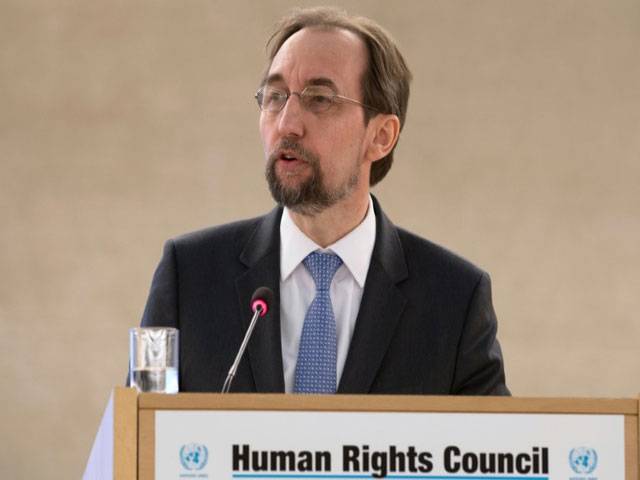GENEVA - Turkey’s state of emergency has sparked human rights abuses against “hundreds of thousands of people”, including killings and torture, the UN warned Tuesday in a report slammed by Ankara as “biased” and “unacceptable”.
A state of emergency imposed in Turkey following the attempted overthrow of President Recep Tayyip Erdogan in July 2016, and repeatedly extended since then, has had dramatic consequences, the UN rights office said.
The report, which covers all of 2017, cautioned that the extraordinary powers handed to the authorities following the failed coup attempt had caused “a continued erosion of the rule of law and deterioration of the human rights situation.”
“Routine extensions of the state of emergency in Turkey have led to profound human rights violations against hundreds of thousands of people,” it said.
It warned that the use of emergency powers appeared to be meant “to stifle any form of criticism or dissent vis-a-vis the government.” UN rights chief Zeid Ra’ad Al Hussein described the findings as “alarming” and “outrageous”.
“The numbers are just staggering: nearly 160,000 people arrested during an 18-month state of emergency,” he said in a statement.
In addition, he pointed to the “152,000 civil servants dismissed, many totally arbitrarily, teachers, judges and lawyers dismissed or prosecuted, journalists arrested, media outlets shut down and websites blocked.”
“Clearly the successive states of emergency declared in Turkey have been used to severely and arbitrarily curtail the human rights of a very large number of people,” he said.
Turkey reacted furiously, with the foreign ministry accusing the UN rights chief of turning his agency into an organisation that collaborates with “terror” groups.
Turkey insists it is dealing with multiple terror threats including the movement led by the US-based Muslim preacher Fethullah Gulen.
Ankara accuses him of ordering the attempted putsch. Gulen denies the charges.
The report, “which contains distorted, biased and false information, is unacceptable for Turkey,” it said.
Tuesday’s report also decried a massive post-coup crackdown on the media, finding that some 300 journalists had been arrested.
Around 100,000 websites were reportedly blocked in Turkey last year, it said.
The European Court of Human Rights also took Turkey to task Tuesday over its media crackdown, ruling that Ankara had abused the rights of two journalists, Mehmet Altan and Sahin Alpay.
The two were arrested in 2016 and accused of being members of a “terror organisation” run by Gulen.
Altan, an economics professor and journalist, was handed a life sentence in February for his alleged Gulenist links. Prominent columnist Alpay is awaiting trial.
Tuesday’s UN report documented the use of torture and other abuse in custody, listing severe beatings, sexual assault, electric shocks and waterboarding.
“One of the most alarming findings of the report,” Zeid said, “is how Turkish authorities reportedly detained some 100 women who were pregnant or had just given birth, mostly on the grounds that they were ‘associates’ of their husbands, who are suspected of being connected to terrorist organisations.”
“Some were detained with their children and others violently separated from them. This is simply outrageous, utterly cruel and surely cannot have anything whatsoever to do with making the country safer,” he said.
The report listed a case where a “woman who was shackled by her legs immediately after her miscarriage,” and another where a mother was separated from her prematurely-born baby and taken to prison more than 600 kilometres away.
It described the April 2017 referendum that extended Erdogan’s executive powers as “seriously problematic”.
It noted that the move had led to interference with the work of the judiciary and curtailment of parliamentary oversight over the executive branch.
The rights office also pointed out that 22 emergency decrees were promulgated by the end of 2017, with two more since then, often “regulating matters unrelated to the state of emergency and used to limit various legitimate activities by civil society actors.”
This, the report cautioned, fosters “impunity”, by handing immunity to authorities acting within the framework of the decrees.
The report urged Turkey to “promptly end the state of emergency and restore the normal functioning of institutions and the rule of law.”






